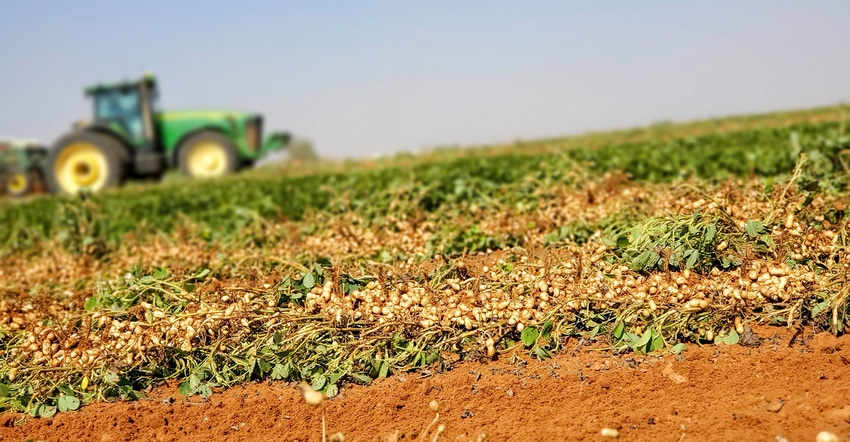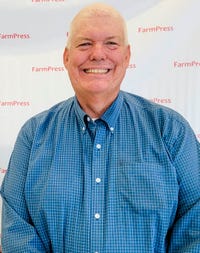
Bob Kemerait, University of Georgia Extension plant pathologist, according to one colleague, “Lives for” the student paper competition, an annual tradition at the American Peanut Research and Education Society annual conference. He has good reason to appreciate the program.
“Presenting in the Joe Sugg session allows the students to become a part of an APRES tradition and an even greater part of the APRES family,” Kemerait says.
“Also, many students met future employers when they presented at APRES. I am one of those,” he said during the 2021 conference, held virtually for the second year in a row.
“The student papers are important for a number of reasons,” he adds. “Primarily, they give the students a chance to pull their research together into a complete package and to gain experience in presenting it at a professional meeting. APRES is like family, so presenting in the Joe Sugg Competition is presenting to a supportive and interested audience.
“Lastly, these presentations are among the best at the meeting and give those in attendance a glimpse of the future science that moves the peanut industry forward.”
Virtual benefits
He says the virtual meetings are not what anyone prefers but does note a few benefits.
 Bob Kemerait (Photo by Shelley E. Huguley)
Bob Kemerait (Photo by Shelley E. Huguley)
"I think I speak for nearly everyone within the APRES organization that it would have been preferable if we could have held the meeting in-person,” he says. “A virtual meeting simply can't replace a traditional meeting with opportunities to interact more fully during the sessions and opportunities to network, brainstorm, and build professional relationships during in-formal times at a meeting.
“However, I see a significant ‘silver lining’ in the virtual 2021 APRES meeting,” Kemerait says. “Virtual has allowed many to attend who otherwise would not have been able to do so. This has been nowhere more evident than in the 2021 Joe Sugg Award Competition. Not only has this been the largest graduate student session in APRES history (41 presentations) but nearly one-third of the presentations were made by students from their homes in Africa. Countries represented included Ghana, Zambia, Uganda, and Malawi. There is little chance they could have attended an 'in-person' meeting.”
Kemerait says the 41 papers presented at this year’s conference set a record. “Of the 41 papers presented, 13 came from outside the United States. It wasn't that long ago when 20 papers seemed like a lot. When I presented in 1999, we may have had 9 or 10 students present papers.”
He also says the increased participation made it feasible to split the competition into two groups, one section for Master’s degree students and another for Ph.D. candidates. “We had 19 MS papers and 22 Ph.D. presentations,” Kemerait says.
“Also, I give a tip of the hat to the sponsors, the National Peanut Board and the N.C. Peanut Growers Association.”
Fast Facts about the Joe Sugg Graduate Student Competition:
The Joe Sugg Graduate Student Competition began in 1989 and changed to the two-division (MS and PhD) format this year.
The 2021 competition was the largest ever with 41 papers (28 last year), representing 11 universities in both the MS and PhD divisions.
The 2021 competition included papers from five countries — The United States, Uganda, Ghana, Malawi, and Zambia.
The North Carolina Peanut Growers Association has sponsored the Joe Sugg Graduate Student Competition since its inception. The National Peanut Board came on in 2021.
Prize money increased to $1,000 in 2020 ($500 winner, $300 second place; $200 for third place).
A Graduate Student Poster Competition, started in 2018, also a record for participation this year with 16 posters, up from 10 in 2020.
Posters represented seven universities —University of Georgia, Oklahoma State, University of Florida, Mississippi State, Makerere University, Texas A&M, and Hebei Agricultural University — also a record and one more than last year, and three countries — The U.S., Uganda, and China. The National Peanut Board sponsors the poster competition.
About the Author(s)
You May Also Like






